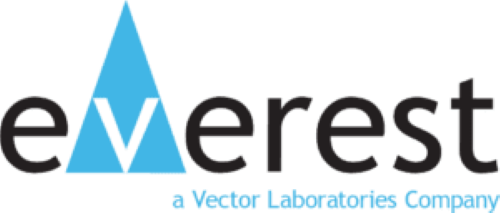Solute Carrier Proteins
The solute carrier (SLC) proteins constitute a group of membrane-integrated transporters. Solutes that are transported by the various SLC group members are extraordinarily diverse and include both charged and uncharged organic molecules as well as inorganic ions. Members of the SLC group could belong to facilitative transporters, allowing solutes to flow passively with their electrochemical gradients, or to secondary active transporters allowing the solute to flow against its electrochemical gradient by having the transport coupled to another solute that passively flows with its electrochemical gradient such that the free energy change for the two solutes together is still favorable.
Primary active transporters (allowing solutes to flow against their electrochemical gradient by coupling to an energy generating process like ATP hydrolysis), ion channels and aquaporins are different types of transporters that do not include SLC proteins.
Pharmaceutical companies are getting increasingly interested in SLC proteins. Several are active in the blood brain barrier and are being investigated as potential aids for drugs delivery by allowing new drugs to mimic the specific solutes. Examples are SLC7A6 involved in amino acid transport, SLC2A1 involved in hexose (glucose) transport, SLCO1B1 involved in transport of organic anions and opioids, SLC6A8 involved in transport of brain creatine, etc. Protein SLC6A4 is a strong candidate as a drug target, because it is a serotonin transporter that removes the neurotransmitter from the synaptic cleft and thus terminating its function. Serotonin is known to affect emotions and is the target for stimulants such as amphetamines and cocaine. Genetic disorders of the serotonin transporter metabolism may result in aggressive behavior in Alzheimer disease patients, alcoholism, clinical depression, social phobia, obsessive-compulsive disorder (OCD).
Sequence variations in the gene SLC24A5 have been associated with differences in skin pigmentation. A single-nucleotide polymorphism (SNP) results in proteins with one amino acid difference (A111 or T111).
In 98.7 to 100% of European samples the threonine variant (T111) was found, while in 93-100% of African, East Asian and Indigenous Americans the alanine variant (A111) was found. It is currently estimated that the T111 variant became predominant amongst Europeans 5,300 to 12,000 years ago indicating that evolution to lightly-pigmented skin occurred.
Please view our soluble carrier protein products below, search our website or view our polyclonal antibody production services and custom antibody services.
Antibodies for Solute Carrier Proteins
| Everest code | Principal name | Applications tested | Species reactivity | Size available |
|---|---|---|---|---|
| EB09482 | Goat Anti-GLUT5 / SLC2A5 Antibody | Pep-ELISA, IHC | Human | 100µg/200µl |
| EB07322 | Goat Anti-GLUT8 / SLC2A8 Antibody | Pep-ELISA | Human | 100µg/200µl |
| EB08088 | Goat Anti-KCC1 / SLC12A4 Antibody | Pep-ELISA, WB, IHC | Human, Mouse, Rat, Dog | 100µg/200µl |
| EB08090 | Goat Anti-KCC3 / SLC12A6 Antibody | Pep-ELISA, WB, IHC | Human | 100µg/200µl |
| EB08089 | Goat Anti-KCC4 / SLC12A7 Antibody | Pep-ELISA | Human, Mouse, Rat | 100µg/200µl |
| EB09262 | Goat Anti-LAT1 / SLC7A5 Antibody | Pep-ELISA, WB | Human, Dog | 100µg/200µl |
| EB06971 | Goat Anti-NHERF2 (isoform a) Antibody | Pep-ELISA, WB, IHC | Human | 100µg/200µl |
| EB06970 | Goat Anti-NHERF2 (isoform b, e) Antibody | Pep-ELISA, WB | Human | 100µg/200µl |
| EB08818 | Goat Anti-SLC10A2 / ASBT Antibody | Pep-ELISA, IHC | Human | 100µg/200µl |
| EB08819 | Goat Anti-Slc10a2 (mouse) Antibody | Pep-ELISA, WB | Mouse | 100µg/200µl |
| EB05131 | Goat Anti-SLC16A7 / MCT2 Antibody | Pep-ELISA, WB, IHC | Human | 100µg/200µl |
| EB07474 | Goat Anti-SLC22A16 Antibody | Pep-ELISA, IHC | Human | 100µg/200µl |
| EB08816 | Goat Anti-SLC22A17 Antibody | Pep-ELISA, IHC | Human, Mouse, Rat, Dog, Cow | 100µg/200µl |
| EB07262 | Goat Anti-SLC24A5 Antibody | Pep-ELISA, WB | Human, Mouse, Rat, Dog | 100µg/200µl |
| EB09132 | Goat Anti-SLC26A5 / prestin Antibody | Pep-ELISA | Human | 100µg/200µl |
| EB08955 | Goat Anti-SLC39A4 Antibody | Pep-ELISA | Human | 100µg/200µl |
| EB09191 | Goat Anti-SLC47A1 Antibody | Pep-ELISA, IF, WB | Human | 100µg/200µl |
| EB06743 | Goat Anti-SLC6A4 / 5HTT / SERT Antibody | Pep-ELISA, WB, IF | Human, Mouse, Rat | 100µg/200µl |
| EB07480 | Goat Anti-SLC7A11 Antibody | Pep-ELISA, IF | Human | 100µg/200µl |
| EB06994 | Goat Anti-UCP1 Antibody | Pep-ELISA, WB | Human, Mouse, Rat, Dog | 100µg/200µl |
| EB07716 | Goat Anti-Uncoupling protein 2 / UCP2 Antibody | Pep-ELISA, WB, IF | Human, Mouse, Rat, Dog | 100µg/200µl |
| EB06558 | Goat Anti-VMAT2 / SLC18A2 Antibody | Pep-ELISA, WB | Human, Mouse, Rat | 100µg/200µl |
